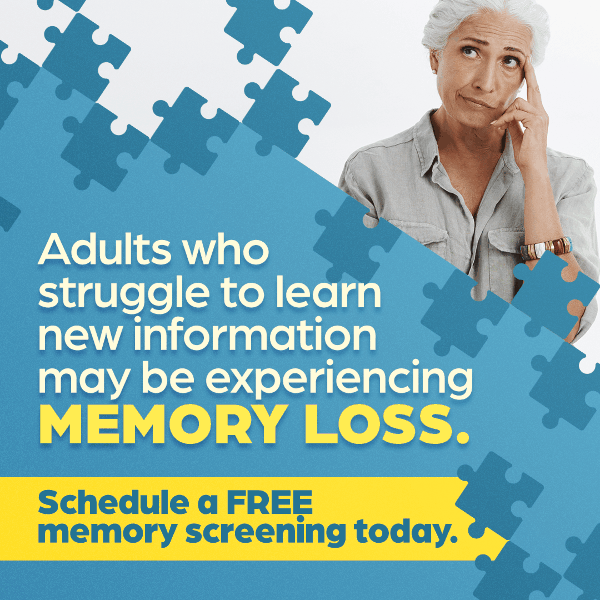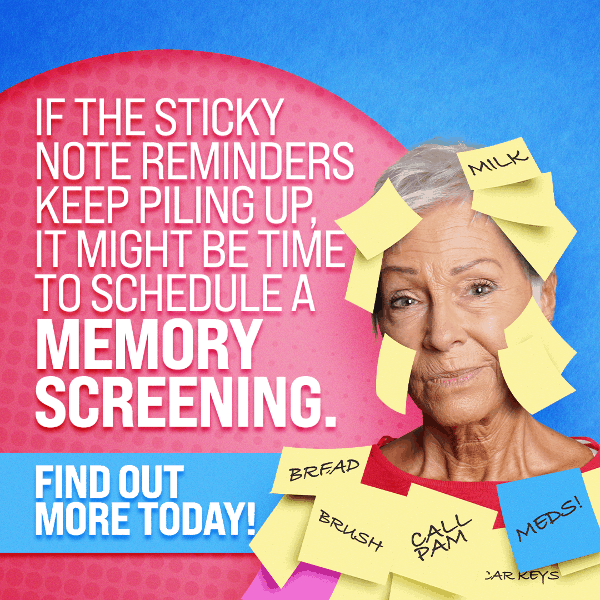We all forget things from time to time. Keys, cell phone, wallet, you name it, someone has forgotten it. As we get older, forgetfulness increases, and for the most part, it is normal. Occasional memory issues differ from symptoms of Alzheimer’s or another dementia. Recognizing when to get help in the early signs of memory loss may mean more control over your future.
Early Signs to Watch For
To start, any memory issues that get in the way of daily life or concern you are red flags to seek help. The reason is twofold. First, early intervention is vital in dementia-related memory loss. Second, other medical conditions, side effects from medications, and injuries to the brain can cause memory loss. In many cases, these issues resolve themselves with treatment.

Dementia is an umbrella term that describes symptoms that impair memory, judgment, reasoning, language, and other thinking skills. While determining if your memory issues are interfering with daily life is a good rule of thumb, other specific signs to watch for include:
- Repeatedly asking the same questions
- Inability to remember common words when speaking
- Having trouble remembering newly learned things
- Difficulty completing familiar tasks, such as following a recipe
- Forgetting where you put things and putting things in inappropriate places
- Getting lost in once-familiar areas
- Sudden shifts in mood or behavior without apparent cause
Why You Shouldn’t Hide Memory Issues

Some people’s fear of a diagnosis makes them hide or deny their symptoms. Family members and friends sometimes add to the problem by compensating for loved ones’ memory issues. Eventually, losing sight of how much they’ve all adapted to the impairment. If you don’t seek help, you won’t know if the cause is a treatable condition. If you do have Alzheimer’s or other forms of dementia, you can also lose out on early intervention benefits such as:
- Beginning therapies that can help ease symptoms and slow disease progression
- Opportunities for you and your loved ones to learn more about the disease
- Playing a more active role in future care preferences and settle legal and financial matters
Free Memory Screens, Priceless Intervention
Though age, family history, and genetics can increase your risk, anyone can develop Alzheimer’s or other dementia. Brain Matters Research offers free memory screens that assess your risk for developing a memory disorder. The quick assessment isn’t meant to diagnose any particular condition but helps determine if your memory issues would benefit from further evaluation.

The assessments are recommended annually for those over the age of 65 or at increased risk. Initial results can be used as a baseline to monitor memory changes over the years. Call (772) 223-7880 to set up your free memory screen appointment, or visit our website to submit a request online.
References:
https://www.mayoclinic.org/diseases-conditions/alzheimers-disease/in-depth/memory-loss/art-20046326




